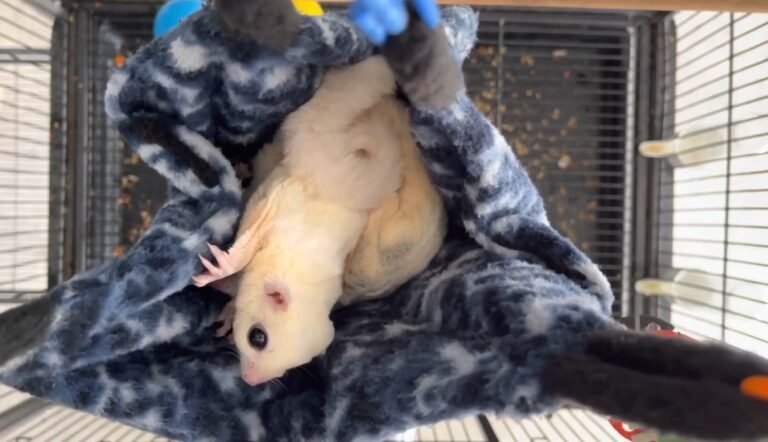What Do You Feed A Sugar Glider
What do you feed a sugar glider? If you’re a proud owner of these adorable little creatures, this is a question you’re likely to ask. And it’s an important one, as proper nutrition is crucial for your sugar glider’s health and well-being. In this article, we’ll delve into the wonderful world of sugar glider food, exploring their dietary needs, the best foods to feed them, and some common mistakes to avoid. So let’s jump right in and ensure that your sugar glider gets the nourishment it deserves!
The Natural Diet of Sugar Gliders
To understand what to feed a sugar glider, it’s helpful to look at their natural diet in the wild. Sugar gliders are omnivores, which means they eat a combination of plant-based foods and proteins. In their native habitats of Australia, Indonesia, and New Guinea, sugar gliders feed on a variety of fruits, nectar, tree sap, insects, and even small vertebrates.

1. Fruits and Vegetables
Fruits and vegetables should form the foundation of your sugar glider’s diet. Offer a wide range of options to ensure they receive a diverse array of nutrients. Some suitable fruits and vegetables include:
– Apples
– Bananas
– Grapes
– Melons
– Strawberries
– Carrots
– Sweet potatoes
– Leafy greens like kale and spinach
2. Proteins
Protein is an essential component of a sugar glider’s diet. In the wild, they catch insects and consume small animals. As a pet owner, it’s your responsibility to provide them with appropriate sources of protein. Some protein-rich foods you can offer include:
– Mealworms
– Crickets
– Boiled eggs
– Cooked chicken (boneless and skinless)
3. Commercial Sugar Glider Food
Commercial sugar glider food is specifically formulated to meet their nutritional needs. These pellets often contain a blend of fruits, vegetables, and proteins, providing a balanced diet in a convenient form. While commercial food can be a part of their diet, it should not be the sole source of nutrition. Always supplement with fresh fruits, vegetables, and proteins.
4. Nectar and Sap
Sugar gliders have a sweet tooth and naturally consume nectar and tree sap in the wild. You can mimic this aspect of their diet by offering them small amounts of honey or maple syrup as an occasional treat. However, it’s important to remember that these sugary treats should be limited due to their high sugar content.
What NOT to Feed a Sugar Glider
While it’s crucial to know what foods are suitable for sugar gliders, it’s equally important to be aware of what foods to avoid. Here are some items that should never be included in a sugar glider’s diet:
Chocolate: Chocolate contains theobromine, a compound that is toxic to sugar gliders and can be fatal if consumed.
Avocado: Avocado contains persin, a fungicidal toxin that can be harmful to sugar gliders.
Onions and garlic: These foods can cause anemia in sugar gliders.
High-sugar and high-fat foods: Sugar gliders have small bodies and metabolisms, so these types of foods can lead to obesity and health issues.
Frequently Asked Questions
1: Can sugar gliders eat human food?
While it’s tempting to share your snacks with your furry friend, it’s best to avoid feeding them human food. Many human foods are not suitable for sugar gliders and can cause digestive problems or other health issues. Stick to their natural diet and offer them appropriate treats in moderation.
2: How often should I feed my sugar glider?
Sugar gliders have a high metabolism, so it’s important to offer them several small meals throughout the day. Aim for at least two to three meals, with a variety of foods each time.
3: Do sugar gliders need supplements?
A well-balanced diet should provide all the necessary nutrients for your sugar glider. However, if you’re concerned about their nutrition or feeding a DIY diet, consult with an exotic animal vet who can recommend appropriate supplements.
4: Can sugar gliders drink water?
Yes, sugar gliders need access to freshwater at all times. Provide them with a water bottle designed for small animals and change it regularly to ensure cleanliness.
Final Thoughts
Feeding your sugar glider a nutritious and balanced diet is essential for its overall health and well-being. Remember to offer a variety of fruits, vegetables, proteins, and limited treats to mimic their natural diet. Avoid harmful foods and consult with a veterinarian if you have any concerns about their nutrition. By following these guidelines, you can ensure that your sugar glider lives a long, happy, and healthy life by your side.







